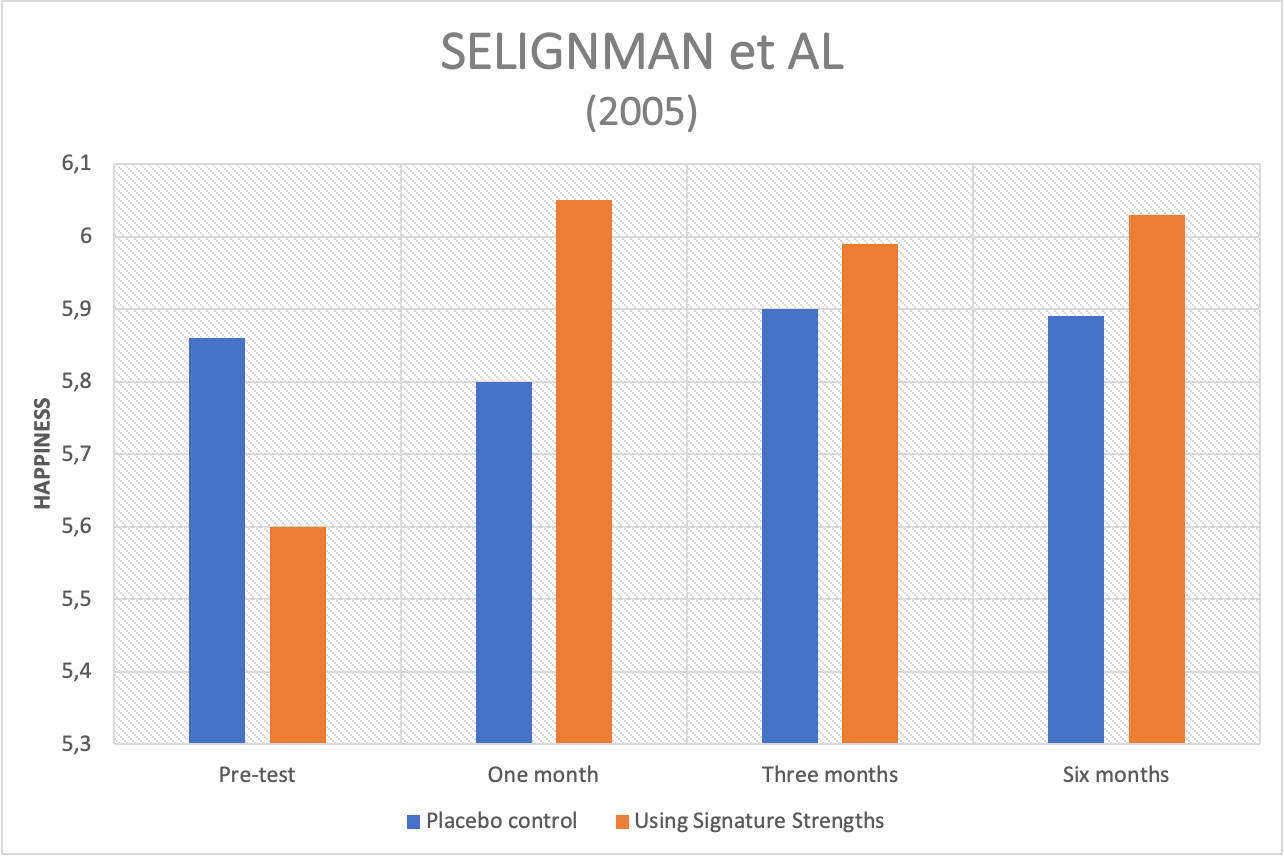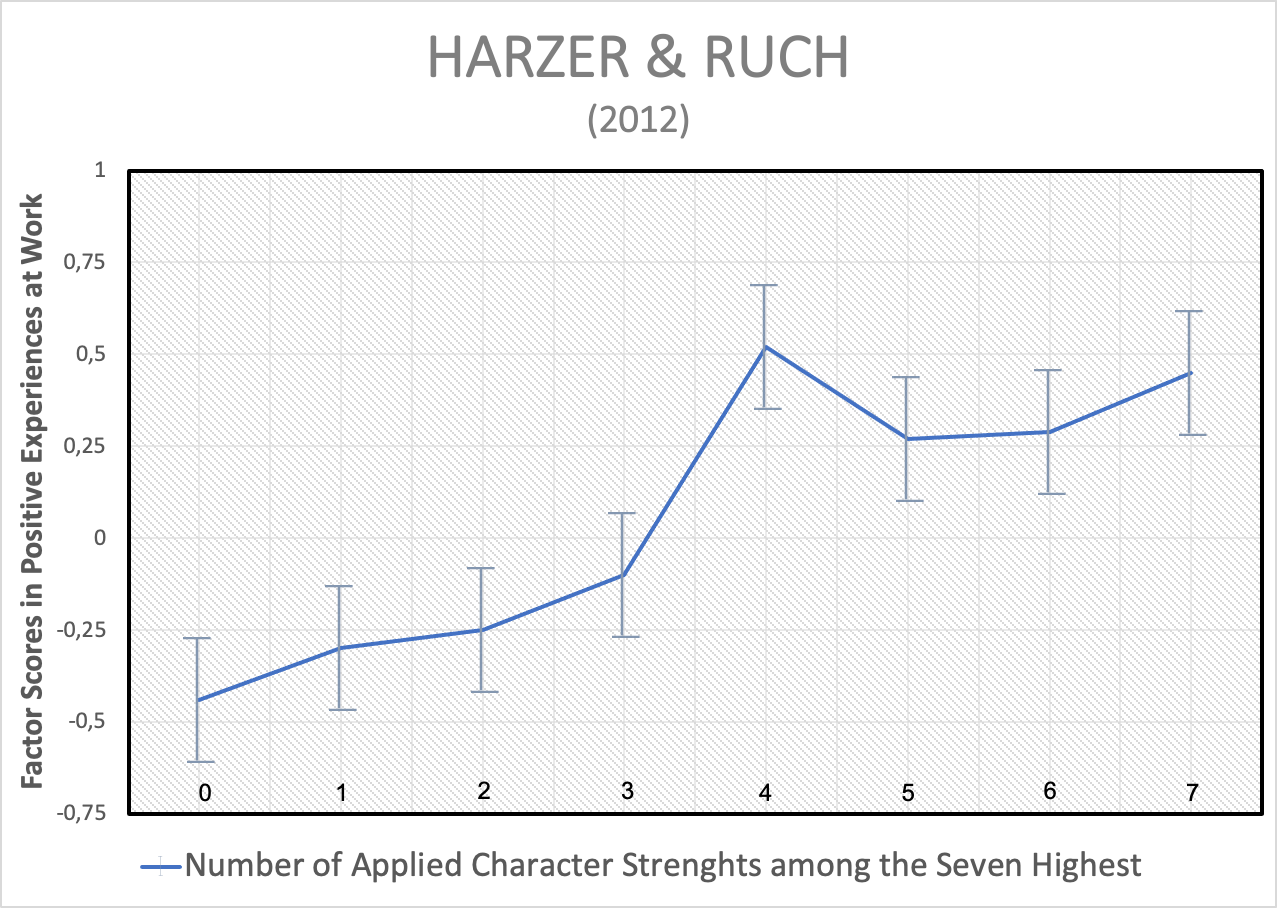On previous articles it was pointed out that, usually in life, we have wrong perceptions of what happiness means and how we can reach it. It was also discussed how to overpass those prejudices of the mind, using some specific strategies.
Today, we will continue on the same lines, proving with yet more strategies that help us experience the fulfillment that we are searching for.
For this, we will focus on a field that is important to all: Our Job.
Martin Seligman (psychologists) points out that, if we focus our efforts to implementing some of our strong character traits into our jobs, that can give us great satisfaction. A satisfaction that is far superior than what money can provide – despite the worldwide belief that the latter is the key factor when choosing a job. Money does not make us as happy as we think it will.
There are 2 factors that are important in our job and we should always seek for. In this article we will cover the first.
- The potential of using the strong positive treats of our character
I am referring here to the virtues that are innate to us and motivate the way we act. These are the characteristics that compose who we really are – that make up our identity.
The characteristic of those virtues:
- They are universal, accepted and recognized by all civilizations
- Lead to constant fulfillment
- Have a moral value, in most of the moral systems of the world.
- Make others to feel positively – do not lead to envy
- They have an opposite (when lookup in the dictionary)
- Their value is timeless
- They are recognizable
- They are distinct
- They are measurable
- Some are institutionalized (in schools and religious institutions).
Seligman engaged himself in identifying, measuring and grading these virtues. He found them to be 24:

Whenever we can express or implement them at work, we are closer to giving meaning to whatever is that we do; and as a result, we feel satisfaction and happiness.
This points to a survey conducted in 2005 by Seligman himself, where people were asked to use one of the above virtues in a new and different way, every day. The purpose in the different manifestation of the same virtue, was to offer the respondent variety, and thus to help him/her overcome the risk of adaptation from the mind (which we talked about in previous articles).
In the following diagram, on the X axis, are the number of virtues used by individuals and on the Y axis, the degree of influence on their happiness. It is thus revealed at what level the use of a person’s strengths contributes to his own happiness and the time span of the effect.

This research was later supplemented by Harzer & Ruch (2012), who tried to measure the effect that the application of a different number of virtues had on the level of job satisfaction. Thus, at it seems also from the chart below, when the number of virtues used by the individual increases, so do the mentions of positive experiences.

The graph also suggests that, the use of four of a person’s highest virtues gives a great boost to measurements. And when that point is reached, it is possible that someone name his/her job, a “calling”.
Thus, if you want to find a job that you feel is your calling, or even, you want to turn your current job into your calling, try to find ways to use the strongest positive elements of your identity, that is, your strongest virtues.
You are now in the position to explain why a job elevates you or throws you off. Either way, you can reinforce it, by encouraging yourself to express yourself freely, authentically, through using your virtues. This is definitely something amazing you can do, the effects of which you will experience immediately.
Nevertheless, if your today’s job does not give you room for this, then you should probably look for something new, in order to feel satisfied.
In our next article we will focus on the second factor, which helps us get satisfaction from our work. Until then, keep practicing with what you have learned so far and bring more happiness into your life.



